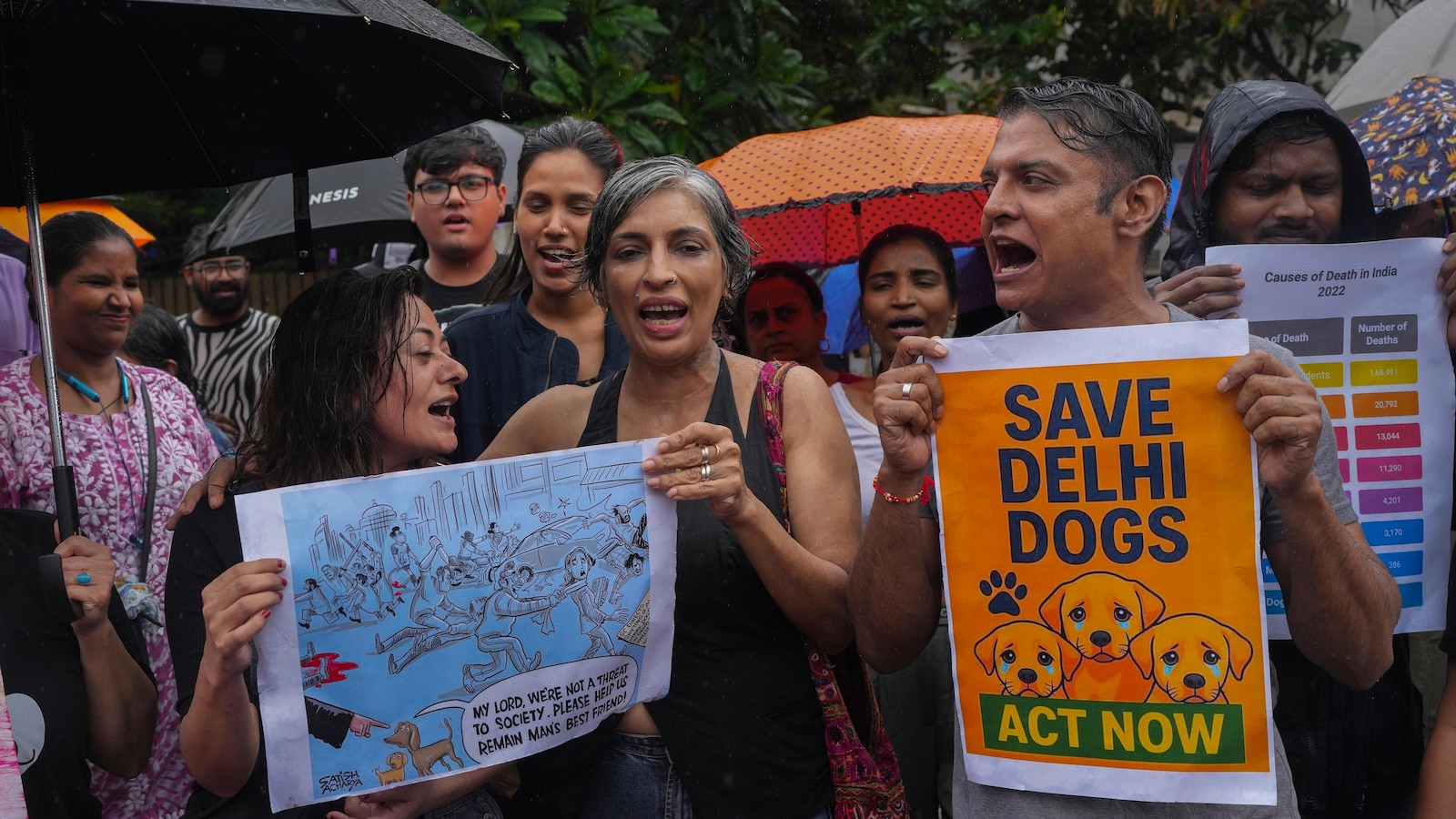India’s Supreme Court Orders Stray Dogs Returned to New Delhi Streets in Modified Ruling
Court directs release of sterilized and immunized dogs to the same localities and calls for designated feeding spaces after activists appealed earlier relocation order
NEW DELHI — India’s Supreme Court on Friday modified an earlier judgment and ordered the release of all stray dogs that had been removed from New Delhi streets after sterilization and immunization, directing authorities to return them to the same localities and to establish designated feeding spaces across the capital.
The ruling, issued Aug. 22, 2025, revises a previous Aug. 11 judgment that had required the permanent relocation of those animals to shelters. Animal welfare groups and activists filed an appeal against the earlier decision, arguing for the return of dogs to their original neighbourhoods after they had been sterilized and vaccinated.

The court’s amended order instructs municipal authorities to release the dogs into the localities from which they were taken and to create feeding zones to support managed care. The dogs involved had been subject to capture for sterilization and immunization as part of public health and population-control efforts.
While many of the animals roaming New Delhi’s streets are harmless, authorities have cited rising incidents of dog bites as a public-safety concern, including reported attacks on children. Estimates based on hospital records suggest New Delhi records nearly 2,000 dog-bite episodes every day. Rabies transmitted through dog bites is caused by a virus that attacks the central nervous system and is almost always fatal if left untreated, public health experts say.
The court did not set out a detailed timeline for the returns or elaborate on enforcement mechanisms. Local civic agencies and municipal corporations will be responsible for implementing the release and for establishing the feeding spaces ordered by the court.
The modified ruling reflects a continuing legal and policy debate in the capital over how best to balance public health and safety with animal welfare. The sterilization-and-immunization approach aims to reduce breeding and limit disease transmission while allowing animals to remain in familiar urban environments. Critics of relocation to shelters had argued that permanent removal could cause stress to animals, disrupt local ecosystems and be impractical given shelter capacity.
Authorities and animal-welfare organisations will now need to coordinate on logistics and monitoring to ensure the dogs’ return is carried out in a manner consistent with the court’s directives and with public-safety considerations. The case highlights broader challenges faced by densely populated cities as they seek to manage urban animal populations and protect residents from zoonotic risks.